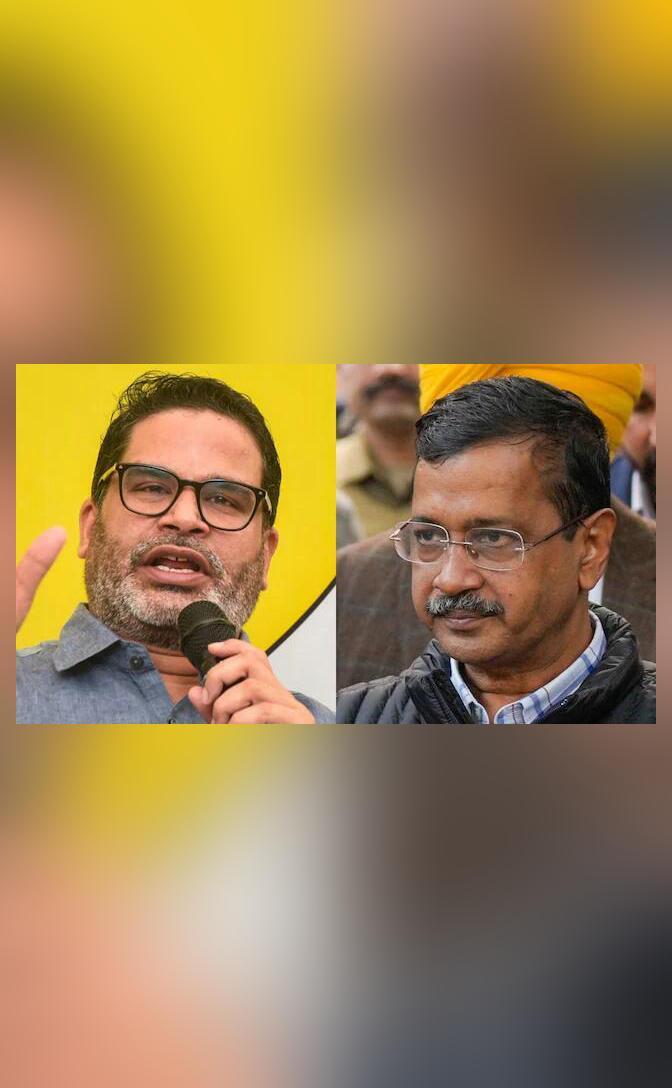
Prashant Kishor Lists Reasons Why Kejriwal & AAP Lost in Delhi Elections
The recent Delhi elections saw a significant defeat for the Aam Aadmi Party (AAP) and its leader, Arvind Kejriwal. The party, which had been in power in the national capital for over a decade, failed to retain its majority and was reduced to a single seat. The defeat has sparked widespread speculation about what went wrong for the AAP, and one of the most prominent voices to weigh in on the issue is Prashant Kishor, a seasoned politician and former political strategist.
In an interview with News18, Kishor identified several reasons that contributed to the AAP’s defeat, including Kejriwal’s decision to resign as Delhi Chief Minister after being granted bail in the liquor policy case. Kishor termed this move “a big strategic mistake” and argued that it damaged Kejriwal’s credibility and hurt the party’s chances.
“This was a big strategic mistake,” Kishor said. “He should have resigned after his arrest, not after his bail. Because when he resigned after his arrest, it looked like he was taking responsibility for his actions. But when he resigned after his bail, it looked like he was running away from the consequences of his actions.”
Kishor also pointed to the 10-year anti-incumbency factor as a significant reason for the AAP’s defeat. He argued that the party had been in power for too long and had become complacent, leading to a lack of innovative thinking and a failure to address the concerns of the people.
“The 10-year anti-incumbency factor was a big factor in this election,” Kishor said. “The people of Delhi had been voting for AAP for a decade, and they were looking for a change. AAP didn’t innovate, they didn’t come up with new ideas, they just kept repeating the same things they had been saying for years.”
Another factor that Kishor identified was Kejriwal’s fluctuating stance on joining and exiting the INDI Alliance. Kishor argued that this move hurt Kejriwal’s credibility and made him appear indecisive and uncertain.
“Kejriwal’s decision to join and then exit the INDI Alliance was a big mistake,” Kishor said. “It showed that he was not willing to take a stand on important issues and was instead trying to play it safe. This hurt his credibility and made him appear uncertain and indecisive.”
Kishor also pointed to the party’s failure to address the concerns of the people, particularly in the areas of education and healthcare. He argued that the party had made promises that it was unable to fulfill, leading to widespread disillusionment and frustration among the people.
“AAP had made a lot of promises, particularly in the areas of education and healthcare, but they didn’t deliver,” Kishor said. “The people of Delhi were looking for a party that could deliver on its promises, but AAP failed to do so. This led to widespread disillusionment and frustration, and ultimately, the defeat of the party in the elections.”
Finally, Kishor identified the party’s failure to build a strong organizational structure as a significant reason for its defeat. He argued that the party had become too dependent on Kejriwal and had failed to build a strong team of leaders and workers.
“AAP had become too dependent on Kejriwal,” Kishor said. “They didn’t build a strong organizational structure, they didn’t develop a strong team of leaders and workers. This left the party vulnerable to attacks and ultimately, led to its defeat.”
In conclusion, Prashant Kishor’s analysis of the AAP’s defeat in the Delhi elections highlights several key factors that contributed to the party’s loss. These include Kejriwal’s decision to resign as Delhi Chief Minister after being granted bail in the liquor policy case, the 10-year anti-incumbency factor, Kejriwal’s fluctuating stance on joining and exiting the INDI Alliance, the party’s failure to address the concerns of the people, particularly in the areas of education and healthcare, and the party’s failure to build a strong organizational structure.
Kishor’s analysis provides valuable insights into the reasons behind the AAP’s defeat and serves as a wake-up call for the party to reassess its strategy and approach. By understanding the factors that contributed to its defeat, the AAP can take steps to address these issues and improve its chances of success in future elections.





